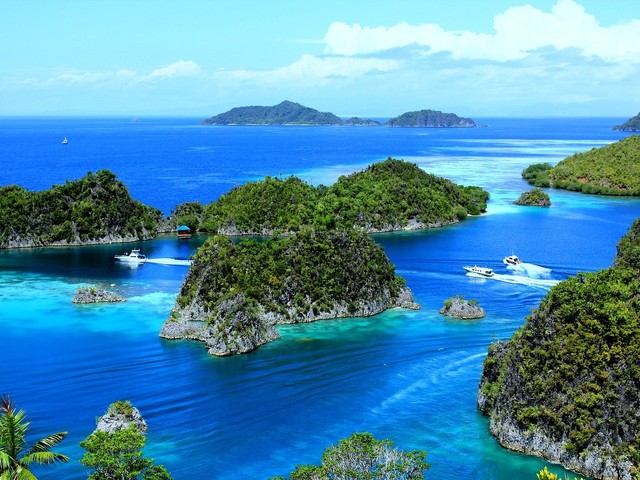Tentang KamiPedoman Media SiberKetentuan & Kebijakan PrivasiPanduan KomunitasPeringkat PenulisCara Menulis di kumparanInformasi Kerja SamaBantuanIklanKarir
2025 © PT Dynamo Media Network
Version 1.103.0
Konten dari Pengguna
The Occupation of West Papua Population
15 Desember 2021 21:44 WIB
·
waktu baca 4 menitTulisan dari Michael Manufandu tidak mewakili pandangan dari redaksi kumparan
ADVERTISEMENT
West Papua is known for its beautiful nature and warm welcoming locals. The tourism sector, has been increasing in popularity. However, since the Covid-19 pandemic hit the world, the tourism sector began to sleep yet again. Luckily, tourism is not the only sector that they have.

The Workforce of West Papua
ADVERTISEMENT
In the midst of uncertainty because of the Covid-19 pandemic, it turns out that the workforce of West Papua in 2020 had an increase of 1.83% compared to 2019. The annual survey conducted by the Central Bureau of Statistics stated that there was an increase of 26.146 people, resulting a total of 492.851 workforce. This amount workforce is hoped to help the economical aspect of West Papua. Even though it had an increase, the Covid-19 heavily affects them, also resulting in unemployment, especially in tourism.
Apart from Tourism, the West Papua population has other economical aspects, namely agriculture, livestock and fishery. It is very fortunate that we still have nature to rely on, when tourism is out of the option.
ADVERTISEMENT
Agriculture
According to the Central Bureau of Statistics, in 2020 the agriculture sector is still Papua’s number 1 source of income with 65% of its population. Products including crops, such as potato, corn, taro, cassava, sweet potato and paddy field. All of those products combined, Papua can produce around 72.655,88 ton/year. This is very important as carbohydrate is a source of energy for most of Indonesians.
Aside from that, Papua also produces vegetables including spinach, chilies, beans, carrots, scallions, onions, garlic, cucumbers, cabbage, eggplant, mustard greens, tomatoes, long beans, kale and chayote. Fruits include, orange, pineapple, banana, jackfruit, guava, avocado and papaya.
If you are a coffee enthusiast, you might have heard about a thing or two about infamous coffee beans that are originated from Papua. That’s true, because both the Papua and West Papua population most standout plantation, producing around 28,48 ton/year. What makes the Papuan coffee special is that they are grown in the mountains, creating a unique flavor.
ADVERTISEMENT
If you are planning on doing a taste test on Papuan coffee, here are a few notable ones; Moanemani, Pegunungan Bintang, Amungme, Senang and Wamena. Of course, you do not have to go around Papua to find these delicacies, because they are available in cities like Sorong and Manokwari.
Fishery
Fishery is another common occupation in an archipelago where beaches are highly accessible, it is not a surprise that the ocean is an option for making a living. Known for the Raja Ampat islands and its beauty, the people are very careful to not disturb the beauty of it. Apart from making the nature unstable, the reefs and fishery procedures are protected and regulated by the law.
ADVERTISEMENT
The fishery of Papua is fully supported by the government. In September 2020, the Minister of Coordination visited fisherman and ports in West Papua to elevate the potential of production and marketing. A part of it was discussing the readiness of Pelindo IV as one of the Domestic and International Hub Ports in the Eastern Indonesia regions, in hopes to improve the well-being of the people.
Livestock
The livestock that are commonly raised in Papua and West Papua are pork, cows, rabbit and domestic chicken. Recently in April 2020, the West Papua Agricultural Extension Officer promoted the Sikomandan program to further support cow or cattle farms that are starting to grow in the region. The promotion and counseling of artificial insemination was done in hopes to fulfill the needs of animal protein in Indonesia, specifically for West Papua.
ADVERTISEMENT
It is no secret, that the archipelago is blessed with nature’s kindness, making the occupation of West Papua population to depend on it. Therefore, we must not take it for granted. We must protect nature, and build sustainable eco-friendly resources.

